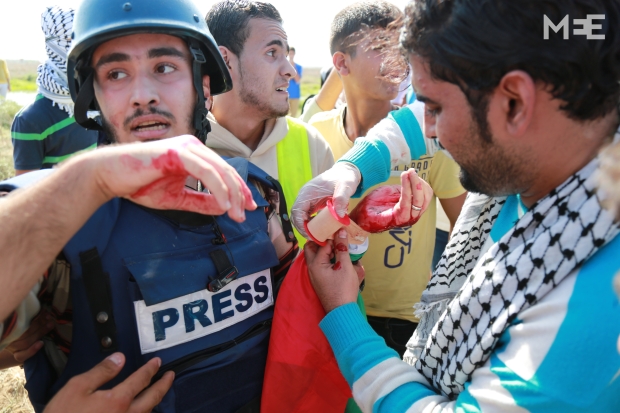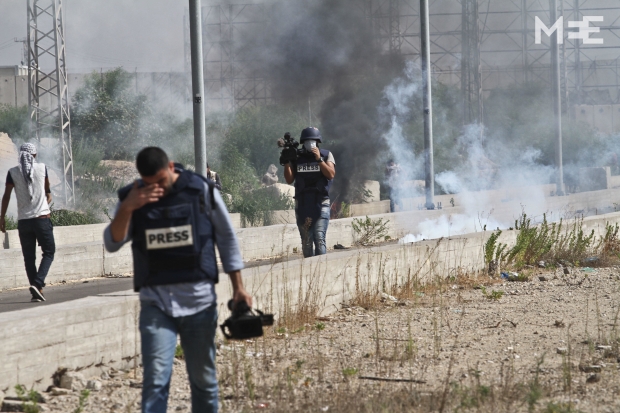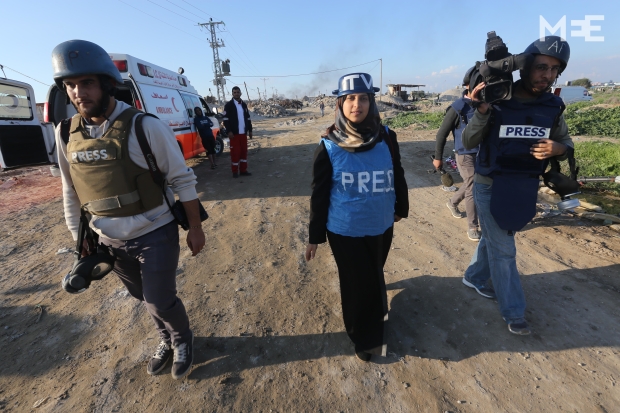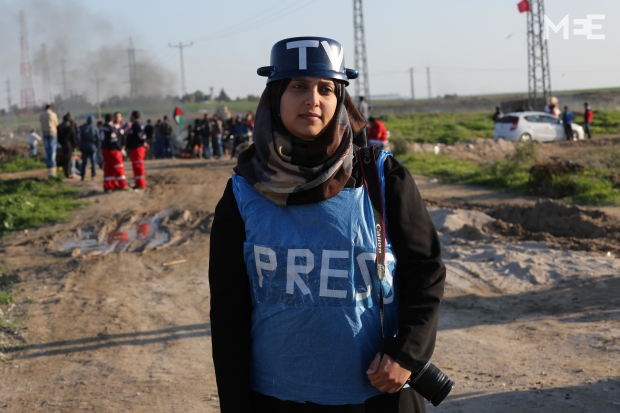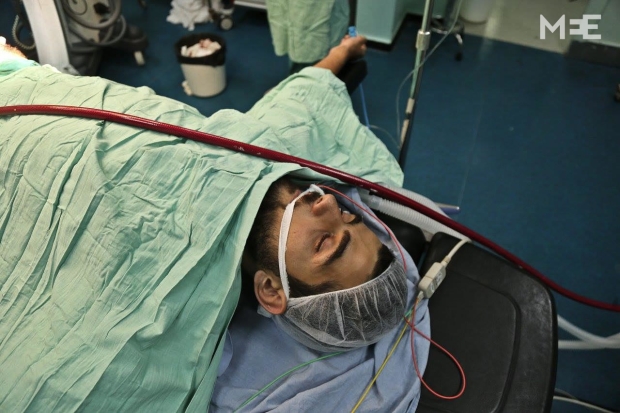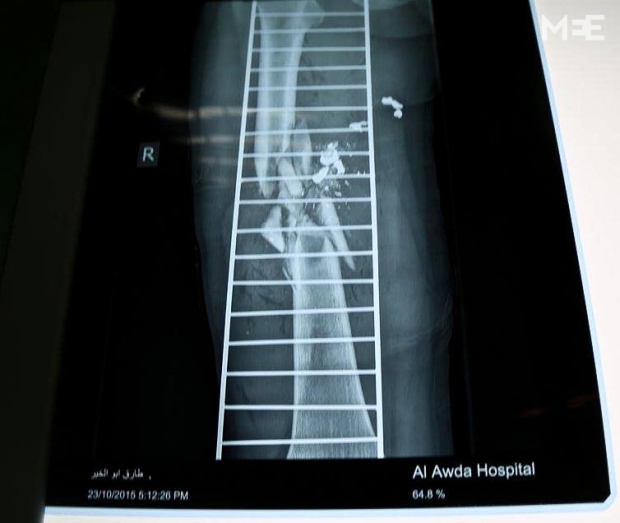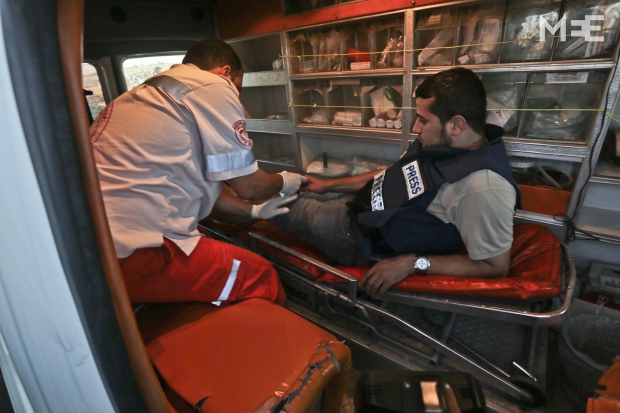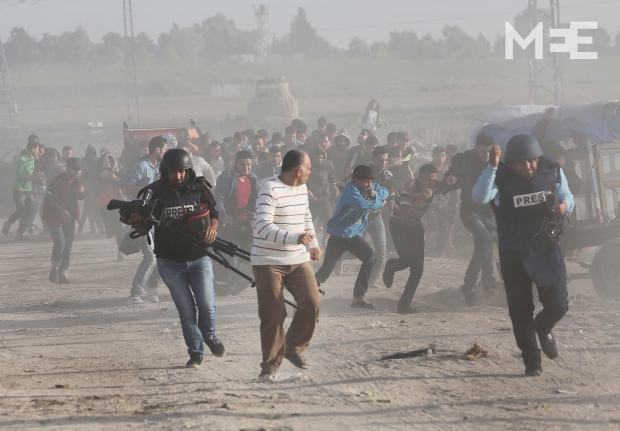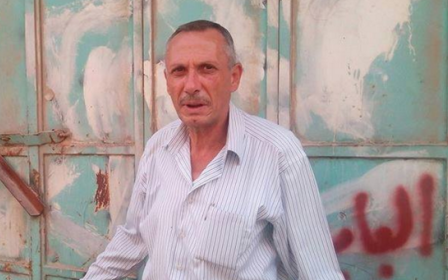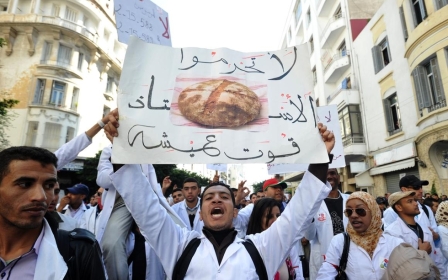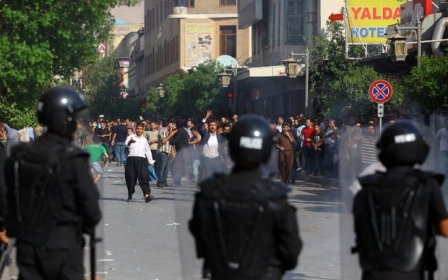In the line of fire - the journalists of Gaza
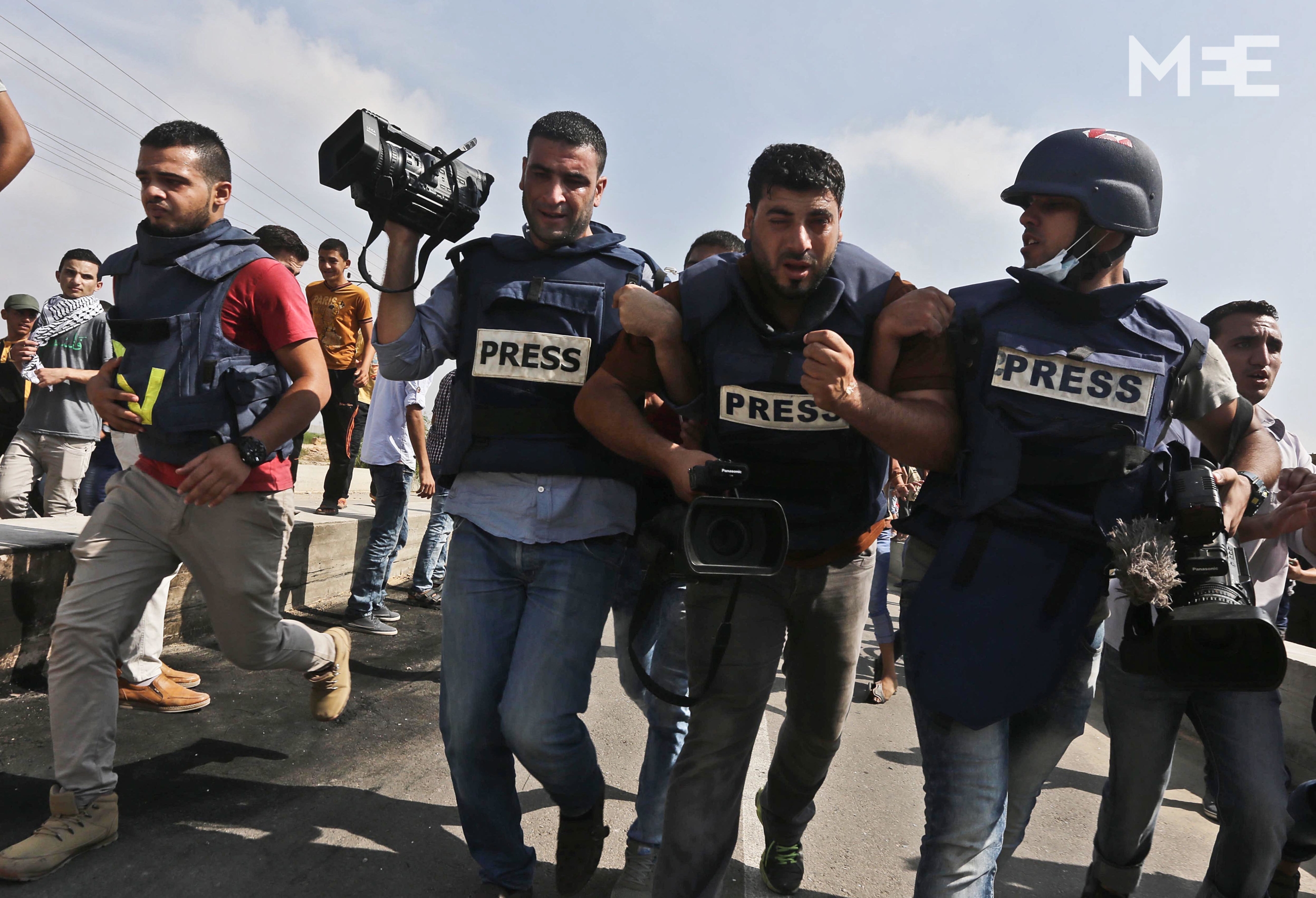
GAZA - Middle East Eye contributor Mohammed Omer went out to speak to some of the journalists in Gaza to hear about the struggles they face as photographers and writers covering the Israeli siege on Gaza and the related protests and wars. These are some of their stories as told to Omer.
Metin Kaya, 24 years old
It was the first day of an October confrontation between Palestinian youth and Israeli troops when I was injured. It was a Friday and myself and several other photographers had been filming for nearly three hours.
I was there to document what was going on at the front lines as part of my job as a photographer with the Anadolu News Agency.
I was wearing a bulletproof vest and helmet, both clearly marked with the capital letters 'TV' in English, and with my camera clearly visible. There is no way I could have been mistaken for anything other than a member of the press. I had taken all necessary steps for my protection, including sitting on the ground because I knew that if shots were fired from the Israeli side, people standing would be the most likely to be hit, and probably in the upper body region.
I was filming the youth who were on the frontline of the demonstration, when I heard an explosion. I fell to the ground and my video camera was blown away. It took me some time to regain consciousness.
At some point I woke up, my body pressing down painfully on my bleeding arm. The bullet had shot-out my camera lens, and shrapnel from both the bullet and my shattered camera had penetrated my hand and arm. I thought that I had lost my left hand but thank God, the doctors managed to save my arm.
I survived but the doctors told me that, had the shot been even just one centimetre off, the shrapnel could have hit the nerves and bones of my hand and the damage could have been irreparable. I know I have done nothing to harm Israel’s security, but journalists are under attack for just doing our jobs and reporting the truth.
This incident will not stop me from doing my job and being the best journalist I can be. As a Turkish man married to a Palestinian, living in Gaza, there are many other jobs I could be doing, including being a translator since I speak four languages. However, I have found through journalism a way to share the message about a cause I sincerely believe in.
Journalism is my weapon against injustice. For me, journalism is a form of non-violent resistance and Palestinian journalism specifically has become powerful in the face of injustice.
I am aware that many journalists suffer from post-traumatic stress disorder, but despite what I have seen and what I have been through I am blessed not to have reached that point at this time. Even if I were to be exposed to more trauma, I believe that my passion for journalism would help me overcome and defeat any disease.
Samar Abu Elouf, 38 years old
When I was 32 I started work as a photographer. I am still doing it and do not plan to stop any time soon.
My day begins with my photography. I usually decide the night before what I want to focus on the following day. I wake in the morning and prepare food for my husband and children. I leave the food ready for them, and then run off to the place where I need to be next. I often take photos in places of confrontation. I take my photos and run back home to upload them onto websites where I hope to be able to sell them.
Since my work is as a freelance photographer, I often don’t sell many photos, but I can’t afford not to be present in the field. This is not only a job for me, and a vital source of income, but it's also a profession that I love, because through it I am able to deliver the message of the Palestinian people.
People are often puzzled by me, as they are unused to seeing a woman taking photos, but I've never cared about any of their negative comments, or how they look at me. I try not to respond to any naysayers and just share smiles and solidarity with them. Instead I try to prove myself through my work and photographs, and I often gain acceptance and admiration as a result, at least on social media websites. My name is now well known among the male photographers and I feel they respect me, which I appreciate.
We, as freelance journalists, have no protection whatsoever; no one is there to provide us with safety and protection measures and when we get injured, we are often blamed ourselves.
Unfortunately, instead of receiving support and recognition for the work we do, no one pays us any attention. This is why I specifically want to deliver a message to all press freedom organisations that carry slogans of press protection yet, on the ground, do nothing to protect us, that they need to start paying attention to the reality here.
We have had to find ways to at least try to protect ourselves. One thing I have done to try and make myself safer is to paint a saucepan so that it looks like a helmet and I wear a plastic bag onto which I've taped the words “TV” and “Press” in white, so that it is at least visible to Israeli troops and so that I am identified as a member of the press.
The plastic bag and saucepan cost me around $1.5, and I've had to resort to that home-made gear as - even it it was available in spite of the siege, I would not be able to afford a bulletproof vests or safety helmets. I hope this message reaches the organisations and international communities that concede that the protection of journalists is a duty.
I know that my saucepan and plastic bag are not going to protect me from bullets or teargas, but at least they make clear to those with the guns on the Israeli side that I'm a journalist.
I'm not only a photographer, I am also a wife and a mother living under complex living conditions with our home and land besieged by Israel. But, regardless of the personal risks, I must continue to work in the profession that I have always loved. Freelance work is exhausting, but I have gained nine international and local awards following my coverage of the 2012 and 2014 wars and hope that through my work I have succeeded in bringing some attention to our plight as journalists and freelancers.
In the 51-day war, my camera was broken, in Shejayeh, but today I am able to continue and despite a lack of equipment, hope this will not be the end of my message. I have a lot more I want to cover.
Tarek Masaud, 19 years old
I work for a local media outlet and at the end of October I was at the Erez crossing in the northern Gaza Strip, together with other journalists, heading out to film clashes between Israeli troops and Palestinian youth.
The teargas was falling much faster than my camera shutter could shoot but I managed to capture several moments of Israeli snipers shooting at Palestinian protestors. All of a sudden I heard a bullet that sounded different to the others; far too close and loud. It had hit me. I fell down, hard. I fell to the ground and suddenly could not feel my feet, but could hear people around me screaming “ambulance, ambulance!”
Several young men rushed towards me to carry me to the ambulance, and I remember that as they were carrying me, another teargas grenade fell and everyone ran away except three of them who just held on to me tighter and who managed to carry me all the way through the haze of noxious gas right to the ambulance.
A bullet had exploded in my right hip. It had pierced my flesh for about 7cm, right down to my bones.
.
Sharief Al Nerab, Palestinian Journalists Syndicate
Freelance journalists are still journalists and they should not be excluded from the realms of protection afforded to other journalists. Unfortunately, however, they do not get the help they need.
Firstly, we are unable to provide the necessary safety equipment for freelancers because these materials are banned from entry into Gaza via the Israeli crossings and there are too many difficult procedures blocking us from getting them into the strip. The second reason is that our financial situation does not allow us any options to remedy this due to lack of funding. I feel sad about the abuse by several Palestinian NGOs, who exploit the plight of freelance journalists by seeking funding from donors, but we feel there is an injustice in the distribution of safety equipment. The money never gets to the freelancers.
It is unfair because when bullet proof vests are donated by donors to Gaza, they never get into the hands of freelancers, but instead go to those who are hired by major media outlets. Freelancers end up getting nothing.
Having said this, I regret the non-implementation of Palestinian law to protect the lives of journalists during conflicts. We believe that some donor groups should pay attention to providing special support for security and safety, and not allow some media organisations the chance to take advantage of the needs of journalists.
New MEE newsletter: Jerusalem Dispatch
Sign up to get the latest insights and analysis on Israel-Palestine, alongside Turkey Unpacked and other MEE newsletters
Middle East Eye delivers independent and unrivalled coverage and analysis of the Middle East, North Africa and beyond. To learn more about republishing this content and the associated fees, please fill out this form. More about MEE can be found here.


